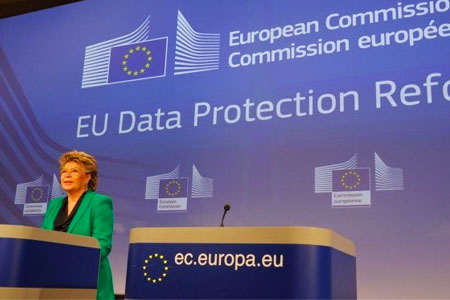
The new European data protective directive has been implemented with regards to the protection of individuals to processing personal data.
The directive is on the protection of individuals with regarding to processing personal data on free movement. It is a very vital component of EU privacy and human rights law.
The right to one’s privacy is a new law in the Europe. And the European Union and all other signatories are respecting one’s need for private and family live. There are seven principles of the new law. These include:
Notice
One of the main directives of the European data protection is that data subjects should be given good notice when the data is collected.
Purpose
The data should be used for the purpose which is stated and no other purpose.
Consent
The data should be disclosed without giving a data subject’s consent.
Security
The collected data should be kept securely from any potential uses.
Disclosure
The data subjects should be fully informed regarding who is collecting the data.
Access
Another important thing about the collective measure is that the data subjects should be given access to the data and there should be corrections made regarding any inaccurate data.
Accountability
 Last but not the least, another important measure of data collection is that the data subjects should have a good method that is available to them in order to hold the data collectors accountable for not following the principles given above.
Last but not the least, another important measure of data collection is that the data subjects should have a good method that is available to them in order to hold the data collectors accountable for not following the principles given above.
Even though these measures have been applied, the OECD guidelines are non-binding and there are data privacy laws across the Europe but there are still some loopholes involved.
Coming back to the main question; Does the new European data protection directive make a difference to whether we should be in or out, the answer is uncertain. There have been many laws implemented in the European region to protect the data of the individuals but this hasn’t been widely accepted or recognised.
The efforts to help people maintain their privacy and breach in our times and age have been significantly high but the efforts are now largely going futile because there are people who have the ability to breach these privacy laws. The answer to the question is largely uncertain. The government is trying to implement the laws to ensure privacy of individuals but there are still certain loopholes that can be detrimental for everyone.
The European commission realised that diverging data protection legislation amongst the European Union member states impede the free flow of data in the European Union and accordingly, in the data protection directive.
The legitimacy of data protection however has been uncertain so far now. It is therefore crucial to realise that there is no certain answer regarding whether we are in or out regarding the legitimacy of data protection. The answer can be yes, if these measures are being correctly implemented or no, if the data is being breached.
